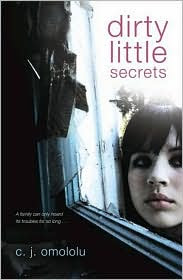
Lucy's Mom has been collecting and saving stuff over the past couple of years. What began as an aversion to throwing away stuff needlessly has turned into a full-blown psychosis. The house has become so cluttered with garbage that one can barely move around it. Living conditions have deteriorated. For Lucy, the biggest struggle is to appear normal so that the other kids don't notice the problem. That's a challenge: she never invites anyone over, she makes up lies to keep her friends at a distance, and she is constantly in fear of someone discovering her family secret.
Just when she thinks she is getting ahead, she comes home to find her mother dead. Now she is faced with the reality that her mother's death will bring her unwanted attention and guarantee that she will never be "normal" again.
On the one hand, I like a story that introduces me to a new world. I had read about "hoarders" before but liked getting to understand the phenomenon in more depth. I also liked the way that Lucy's attempts to dig through the layers of garbage in their house served as a means to sift through the years of her mother's decline. Those parts of the story worked quite well.
I'm not a big fan of the child-in-peril plot line though. This is so obviously a case of a child in over her head that it is hardly something I could enjoy. I'm also not a big fan of the moral ambiguity in the decision to leave the dead mother just lying there for a day (a la Weekend at Bernie's). But mostly I didn't like the way that the story drifted. Exploring the relationship with Mom (and even with the siblings) was interesting, but the romance, Lucy's friendships, and the little boy next door were all plot lines that were so far removed from the story that they mostly distracted me from the dread of what was to come. Finally, the ending is something of a complete cop out as it comes completely out of left field, and doesn't provide emotional pay off.





